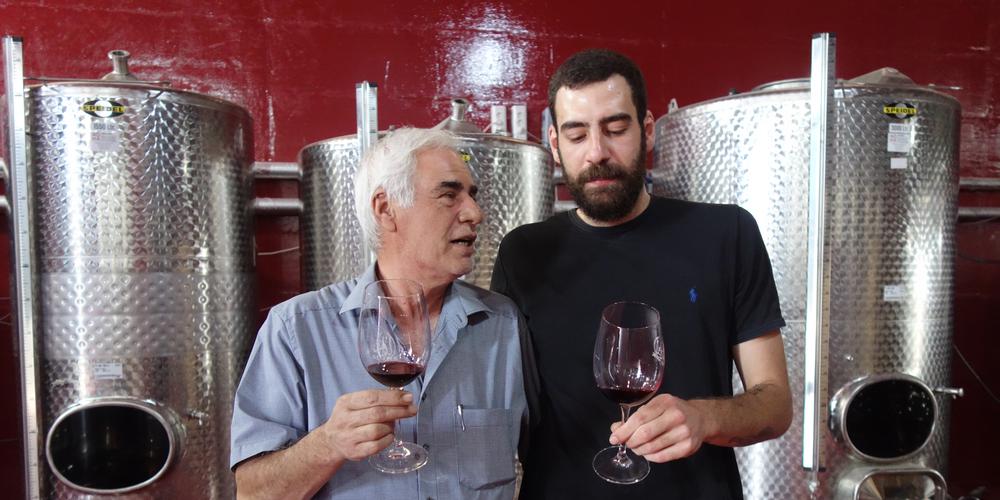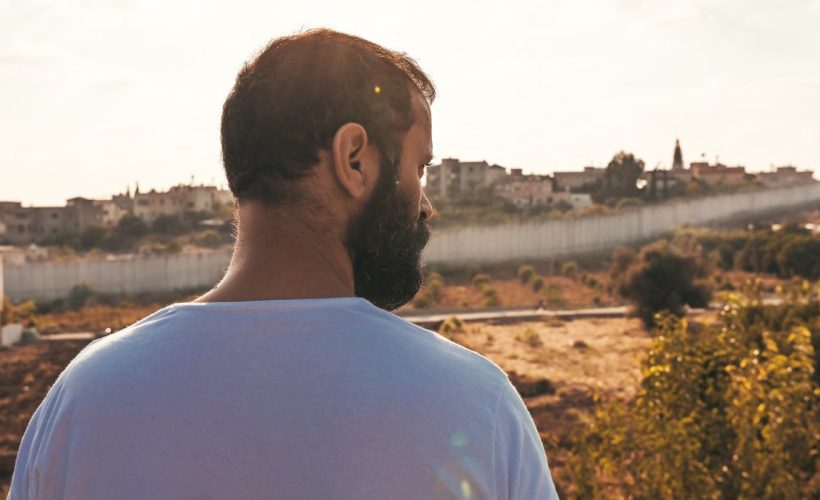Society
2.15.2022
Rmeich Domain, can Lebanese wine solve the crisis?

While Lebanon is going through what seems to be an endless economic, social and political crisis, a family from the south of the country is trying to make the Lebanese wine rise and shine in their own vineyard of Rmeich, only a few kilometers from the Israeli border. A hope in the middle of chaos ?
Located 25 kilometers from Naqoura, the last village in southern Lebanon, just before the border with Israel, the Rmeich estate stands out in the social and political stagnation of the country. A small haven of peace far from the morose capital, the vines rest there as far as the eye can see, in a semblance of eternity.
Seven hectares where international and Lebanese grape varieties are grown. A family adventure that Dany Makhloul, the son, is determined to place on the international wine scene. And for that, they have already invested 70,000 dollars to develop this wine that they intend to spread beyond the local borders.
Why did you decide to work at this winery?
We launched in 2017 as a hobby initially. It was actually a dream of my father to start his own winery in the country. We chose this activity because we were already working for more than 30 years in the winery industry. We were importing Lebanese wine in Germany and Europe. It has today become a family business, so the main workers are me, my brother, my mother and whoever has some time to help. We chose Rmeich village because we come from the South of Lebanon and already had properties there. So it made sense to do it there.

How did you get trained for this specific job?
I did a couple of internships in different wineries but I learned most of it by myself, otherwise we also have an expert in oenology to help us at the site. We also have a restaurant in Germany and this is where I started to learn from my dad.
Can you walk us through the different steps of wine making?
Everyday is different and I can say that there is no routine in the winery field: we usually dedicate 2 to 3 weeks to the harvest. The process of making fine wine requires that the grapes are harvested at a precise time, preferably when physiologically ripe. The second step is the crushing and pressing stage during which we are still working on the yeast and press them in a tank with some water to produce the juice. However, the majority of the winemakers now do this crushing process mechanically. Once the grapes are sorted in bunches, now it is time to de-stem them and crush them. This crushing process used to be done by feet in the past. Then we let the natural fermentation happen. This is the process where all of the sugar is converted to alcohol and a dry wine is produced. Fermentation can require anywhere from ten days to a month or more. Once fermentation is completed, the clarification process begins. This is the process in which tannins, proteins and dead yeast are removed from the wine. For this, the wine is transferred into stainless steel tanks or oak barrels. Filtering and fining may also be done at this stage. The final stage of the wine making process involves the aging and bottling of wine. After clarification, the winemaker has the choice of bottling a wine immediately, which is the case for Beaujolais Nouveau, or he or she can give a wine additional aging as in the case of Grand Cru Bordeaux and great Napa Valley Cabernet Sauvignon. Further aging can be done in the bottle, stainless steel or ceramic tanks, large wooden ovals, or small barrels, commonly called barriques.

What kind of grapes do you grow at Rmeich?
We actually grow 8 different kinds of grapes from red to white and rose. We grow Surah, cabernet sauvignon, cabernet franc, grenache, sauvignon blanc, florentino, Obaydah…
What do you like the most about your job?
What I like the most about this job is the freedom it provides. You work 3 to 5 months and the rest of your time you can spend it traveling the world to sell your wine and make it discover to other people over the plane.

Do you think Lebanese wine has a lot of potential?
Lebanese wine has been present in Europe for 30 to 50 years, it is not a new thing for people. Some wines like Ixsir, Kefraya or Ksara already exist for years and are known worldwide. People sometimes forget that Lebanon is one of the oldest countries to produce wine with the Phoenicians. So yes, I think Lebanese wine has a great potential, even though the current situation in the country makes it harder for us to work and affects the business.
popular

